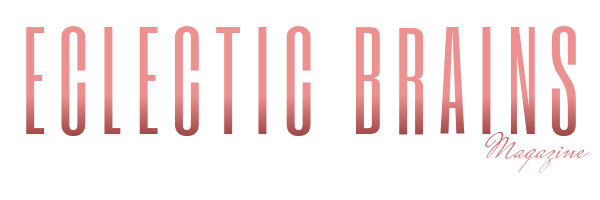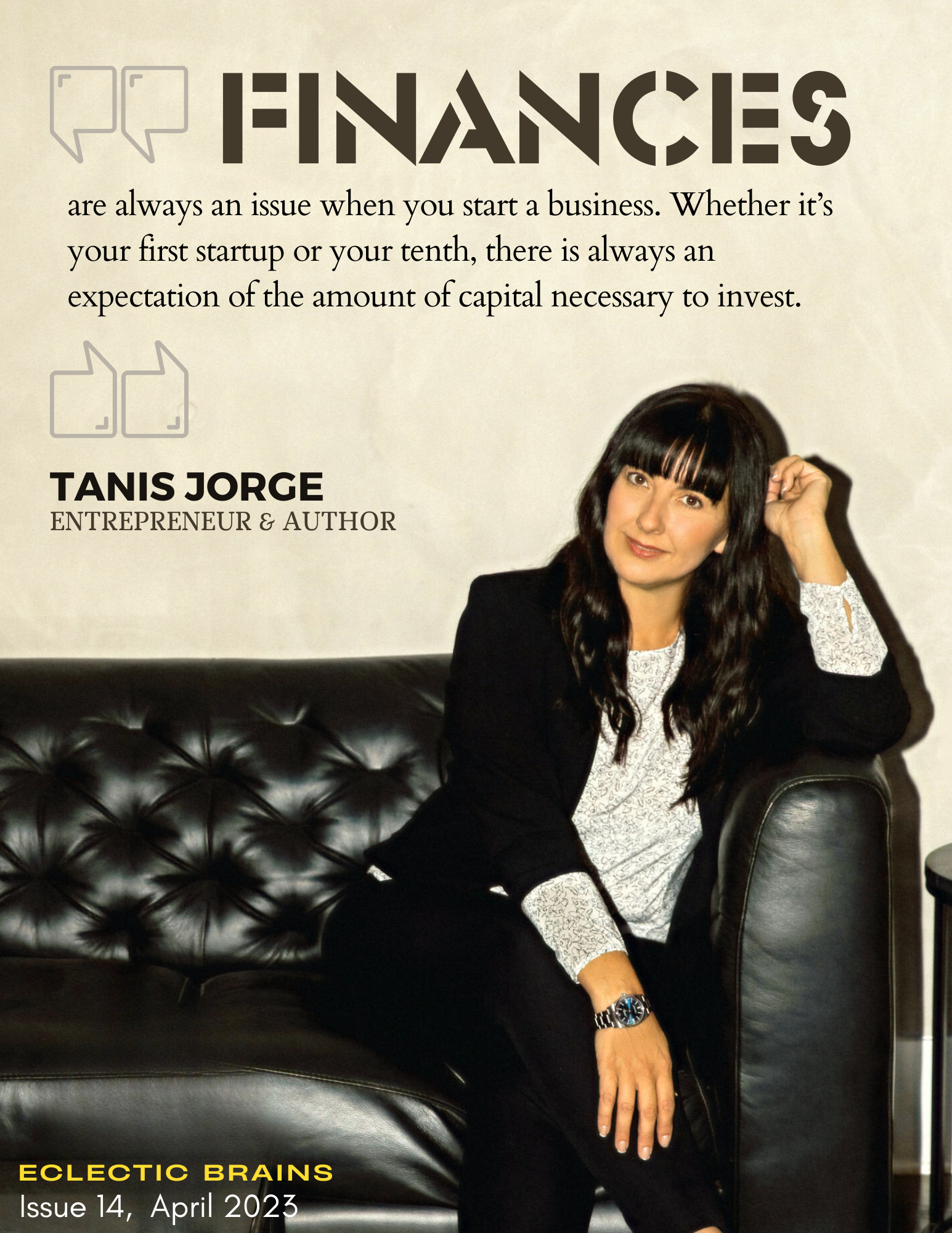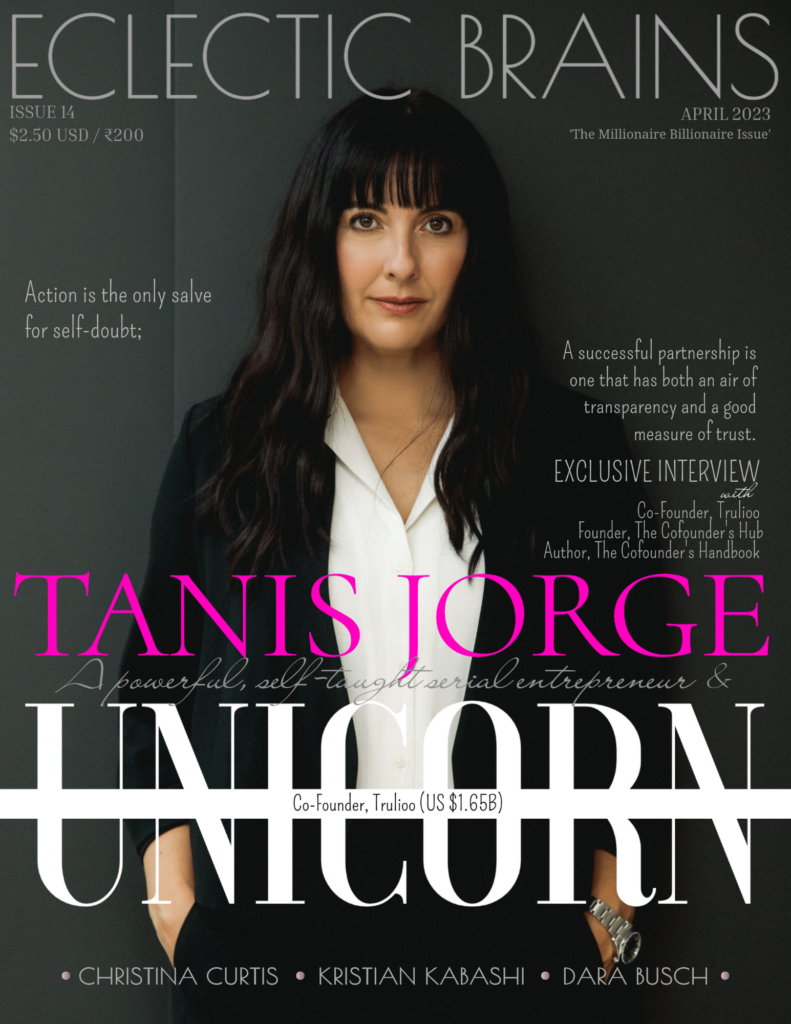
TANIS JORGE
Co-Founder Trulioo ($1.65B US, A unicorn),
Founder : The CoFounders Hub,
Author : The CoFounders Handbook
When was the first time you had your moment of realization, that you were going to be an entrepreneur?
I would say I knew I needed to be an entrepreneur in high school. I remember completing a school project with my soon-to-be cofounder, in a way that was outside the parameters that the teacher wanted. They were looking for an essay and a filled in worksheet; WE filmed a video and edited it (in 1997 which wasn’t easy!). Everyone loved it; we got a C-. It was then that I realized academics wasn’t going to be my thing.
I would like you to take us back to the time when Stephen was at Silicon Valley raising funds for Truiloo and you were managing the company in Vancouver, at the same time managing motherhood with two kids under two. If you can recall how the day looked back then?
That was a hard time. I can say I never anticipated how difficult and different that journey would be from the previous ones we had in our other ventures. As a person who loves the startup process and who really enjoyed raising my kids, I found it very difficult to excel at both; I always felt I was falling short in each endeavour. In a day, I started by getting the nanny set up, trying to spend a little “quality-time” with each child before I left. I then had an hour commute downtown to our office where I worked with our team on the day’s tasks. Then an hour to get home, make dinner (our nanny was mostly childcare focused), tidy, squeeze in more ‘quality-time’ with the little ones, and off to bed. In previous companies, in the evening, I was able to let my mind continue to ponder the startup and even get some more work done but this time around that wasn’t a possibility. I also struggled with working-mom guilt, wanting to ensure my kids had the right amount of time with me to feel loved. It was hard.
What is the major difference, apart from capital, between a bootstrapped company and a venture capitalist-backed company? How different are the journeys?
They are both stressful but venture capital-backed investment adds another layer of responsibility that you are beholden to. Both Stephen and I take our “word” very seriously and when we said we could create a successful company with their funds, we knew we had to back it up with action. I suppose in a bootstrapped company you only have yourself to let down if your business fails but even there, you have a responsibility to employees, suppliers, customers, and even your family. So success matters either way.
What traits do you generally like in other entrepreneurs, and what traits don’t you vouch for?
Actually, it’s the response I had to the previous question: a sense of responsibility. I can trust a person who takes support from others very seriously. Whether they offer support through investment, working for them, supplying or buying from them, entrepreneurs that will do what it takes, have what it takes to be successful. On the other hand, a trait that worries me in a founder is the need to have all the answers or secure all the risks. That is a luxury that is seldom afforded a startup and the inability to move forward without all the details or a low tolerance of risk are warning signs to me.
With all the achievements and Trulioo being now a unicorn, how do you still remain grounded? And what advice do you give to entrepreneurs with the rising economic stability of a company?
I know that my success is the result of many hands. For one, I had an incredible cofounder at my side. Stephen is a brilliant businessman who is excellent at inspiring people with the company vision and tenacious with an execution plan. I have also built enough companies to know that the entrepreneurial journey is a roller-coaster ride and sometimes there are factors that affect your business that are beyond your control. There are always some “lucky” factors in a venture and those keep you humble if you are willing to acknowledge them.
A generic question, How many times will an entrepreneur have self-doubt if they can make it through a situation? Do you have any stories to share on that one? Where you overcame what you felt impossible to do in the first place.
Self-doubt, I believe, is always a lingering factor in any journey, to various degrees. Despite all the success I’ve had in business to date, I still doubt my abilities and capabilities. In my current venture I struggled with my chances of success…why?…because for the first time I was starting a business without a cofounder! For me that’s a big deal! I wondered if I had what it takes to go it alone. Having now written a book and launched a platform, I’m only now seeing a roadmap to success and able to calm some of my concerns. I’m reminded once again that action is the only salve for self-doubt; it’s the only thing that can prove you wrong.
In one of your interviews with TechCrunch, the conversation had this one pointer that I wanted to ask: how necessary is it to have a co-founder partner for a company? Do independent entrepreneurs work for a company? To which you have quoted, You will lose some access to investors because you are a solo entrepreneur; that’s a rule of sorts. I have two questions for you on that one.
If an entrepreneur has scaled a company on his own and he is interested in working with a cofounder later on, when should he plan to partner? Or are there any factors that you can highlight where a co-founder is very much needed in a company?
I actually have a great real-life story in my book that is an example of this. Yes, you can bring someone in as a partner later in your business but you need to be very intentional and plan for it carefully. First, make sure that you clearly define what you expect that person to accomplish and if possible match it up with a vesting period. Additionally, you need to be extra careful that your values align. Bringing in a new partner can disrupt a flourishing culture if the team senses that the values are out of sync.
In the same scenario, how much should a co-founder take home? Always 50%? Even though a company was first built by a solo partner?
This depends on the needs and future plans for the company. Equity disbursement should be based on what was A) contributed from the past, B) recognition for what is brought into the partnership (ie. capital investment), and C) what is expected for the future. For example, if the late cofounder is part of a succession plan, there needs to be enough equity to incentivize them but still keep value for the original partner.
While the two cofounders have their areas of strength, is it important for all the co-founders to know the overall process of the company in detail? If one is a tech guy and the other is a finance guy, do they still need to have an overview of each other’s business in detail?
Someone asked me recently, “Can’t each cofounder just “stay in their lane?”. The answer is a resounding NO! As a matter of fact, a successful partnership is one that has both an air of transparency and a good measure of trust. You can only have those two things when there is robust communication and confidence that the other person is doing their tasks well. A business is too complex to allow for “lanes”; decisions in one department will always affect the others. Unless there is a deep understanding of all the components occurring within the company, the right decisions can’t be made. At least then, if an error in judgement occurs, leadership can know it is from a shared decision not the blame of one.
How did you come up with the idea that I am going to create a co-founder book and advisory rather than a guide on entrepreneurship (because there are lots of guides available for the same)? Where did the idea come from? Is it just an idea that popped up, or because of your multiple successful co-founding companies with Stephen, or was it something in your head from a really long time ago? (Like the way you had pre-decided, I am going to stay in this company for a tenure of two or three years.)
I would often get asked to advise founders who were struggling in their partnerships. I noted that many were “silently suffering” and struggled to find help for fear of instilling a lack of confidence from those they confided in ie. investors, employees, family, etc. I heard over and over, similar struggles from different partnerships and realized that there needed to be a guide, not just from coaches and academics, but from actual cofounders who had been there and had wisdom to share about the experience. And so, The Cofounder’s Handbook was born.
I wanted to write a book that would guide people no matter what stage their partnership was in. Asking yourself if you even need a partner, where to find one, what to look for, how to vet them, and how to contract with them is the first stage. Then, how do you build a strong partnership so as not to run into issues is the vitally important, yet often overlooked, second stage. Finally, how to have difficult conversations, work through serious challenges in a way that doesn’t jeopardize the business, and exit the partnership on a positive note, all make up the third stage. The book is essential for anyone in a partnership because it is both a roadmap and an insurance policy for whatever comes your way.

Do co-founders feel they are alone at times? Select One :
- Is it as lonely as being a solo entrepreneur?
- Is it inevitable while running a company, or
- Does it really depend from person to person?
Honestly, I think the loneliest entrepreneur is one who is working their business while at the same time having issues with their cofounder. It adds a significant layer of stress on top of running your company and can quickly become the biggest risk to your success. Trying to execute a business plan while trying to navigate personal issues with your cofounder is daunting and sadly, if not remedied, has the chance to curtail your efforts.
Instead, my goal, through the book and our online resources, is to show how having a partner can be the greatest asset of your business. It also has the chance to be one of the greatest human experiences. Having someone by your side as you chase your dream and ride that roller-coaster ride, can build a bond that enriches and brings so much joy to your life. It’s worth all the hard work, I promise.
What is the key to being a successful co-founder?
Communication, intentionality, transparency, authenticity, vulnerability, grace, and a willingness to look at the partnership through the lens of a team striving towards the same goal.
When was the first time you were resilient to a situation in your life, and how did you move forward through that challenge?
Finances are always an issue when you start a business. Whether it’s your first startup or your tenth, there is always an expectation of the amount of capital necessary to invest. Many times I have been unsure that I could make it work; either when I was young and wasn’t sure whether I could make a mortgage payment, or later in life wondering if we could execute with the budget we set out with. Every time, the phrase, “where there is a will, there’s a way”, proved itself. Resourcefulness is a wonderful thing. A willingness to get creative and do what it takes gets you further than you ever thought you could go.
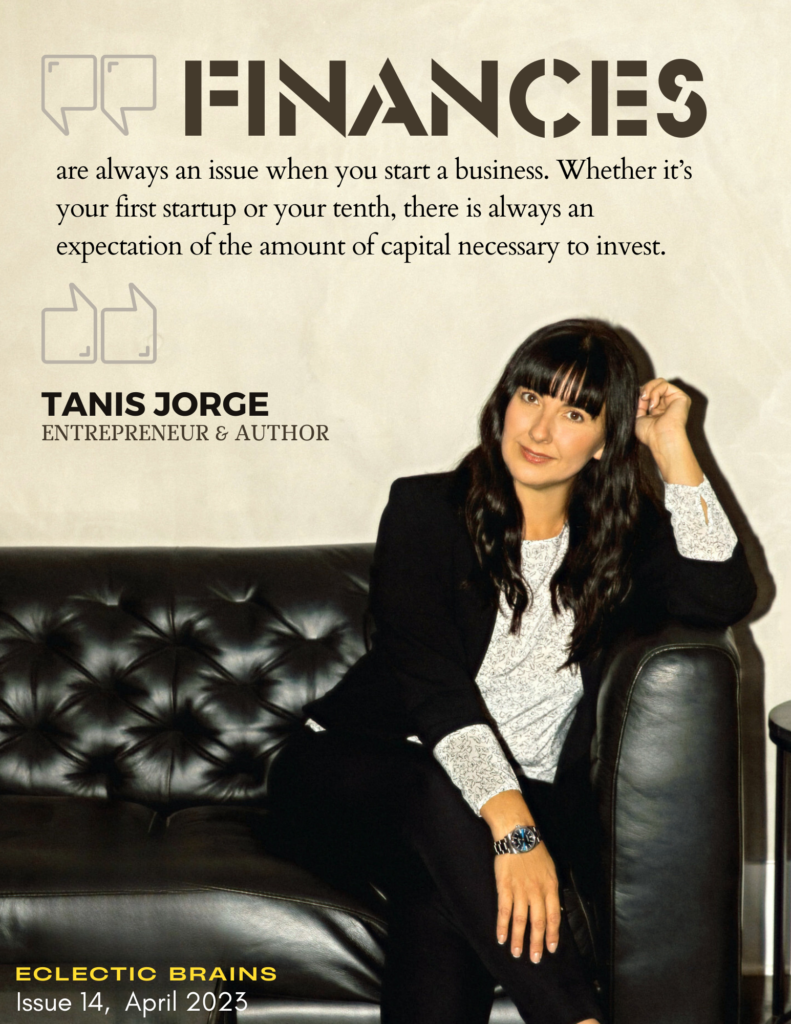
Tell us about Tanis as an entrepreneur and Tanis as a family person; how do you manage both of the worlds? What is your perspective and beliefs on these two different roles?
In my experience, it is difficult to excel at both roles, at the same time. I have learned to give myself grace as I make the decision to spend more time in one role. It’s easy to feel guilty for easing off the gas in one area to focus on the other but I find it often cannot be avoided. So I will say to myself, “This week I’m going to go hard on hitting a deadline in my business, but next week I will compensate by adding a day trip with the family to their favorite recreation spot.” This allows me to have the best of both worlds and not neglect the needs of each role.
On a personal level, you’ve mentioned, as a kid, that your mother helped you out of one bullying incident; however, as a working mother, even though you are there for your kids, do you still have worrisome thoughts of what if someone is bullying my child? How do you manage these kinds of thoughts? What is your internal conversation with intrusive thoughts while you are working?
I’m always worried about my kids! I probably worry too much lol. I know that sometimes I project my own insecurities on them and as such focus on things that might not even be an issue. One important exercise I do is keep open communication and then trust my kids’ responses. I share what I worry about and invite them to explore with me not only ways to make sure my fears never become a reality but also give them the opportunity to help me know that they understand where I am coming from and why it matters. In this way, I know that they know what the danger is and why and how to avoid it. A lack of ignorance is half the battle.
You’ve been so precise with your mental clarity about how long you will stay in a company from the beginning and exited multiple times; where does this peace of mind come from? How easy was it for you and a non-attachment of ‘MY COMPANY’! (It’s not easy to be detached from your passions) Where do you get the mindset from, and how do you come to the conclusion that it’s time to move on?
Early on I discovered my “super-power”; it’s taking an idea and bringing it to fruition. My personality is geared towards novelty, influence, variety, and excitement. Nothing explains the startup process like those 4 words. I discovered that routine, processes, schedules, and structure are my “kryptonite” and suck the joy out of me. Therefore, the early stage is where my passion is and when the structural requirements of later stages begin to show themselves it becomes much easier for me to pass the baton.

With that same question, what are the traits (apart from the skills at work) you look for when selecting the next person to run the company?
This depends completely on both the current stage of the business and where it needs to go. I’ve learned that a shared value in the mission of the company goes a long way to maintaining a positive corporate culture. Additionally, having the next person understand what will be required of them in getting the company to the next phase needs to be clearly laid out. This way they know what is expected of them and have a good idea of the timeline that they will need to be engaged.
What is the essence of your marriage with David? You met him when you were really young. How did you guys work things out all the way through?
We always had the same dreams and goals. We both wanted to achieve big things, grow financially, and experience the cool things in life. That helped us as we made the necessary sacrifices that we needed to in order to make those goals a reality. Together we were willing to go through the struggles knowing that we were both striving for the same end. Shared vision is so important for a strong relationship.
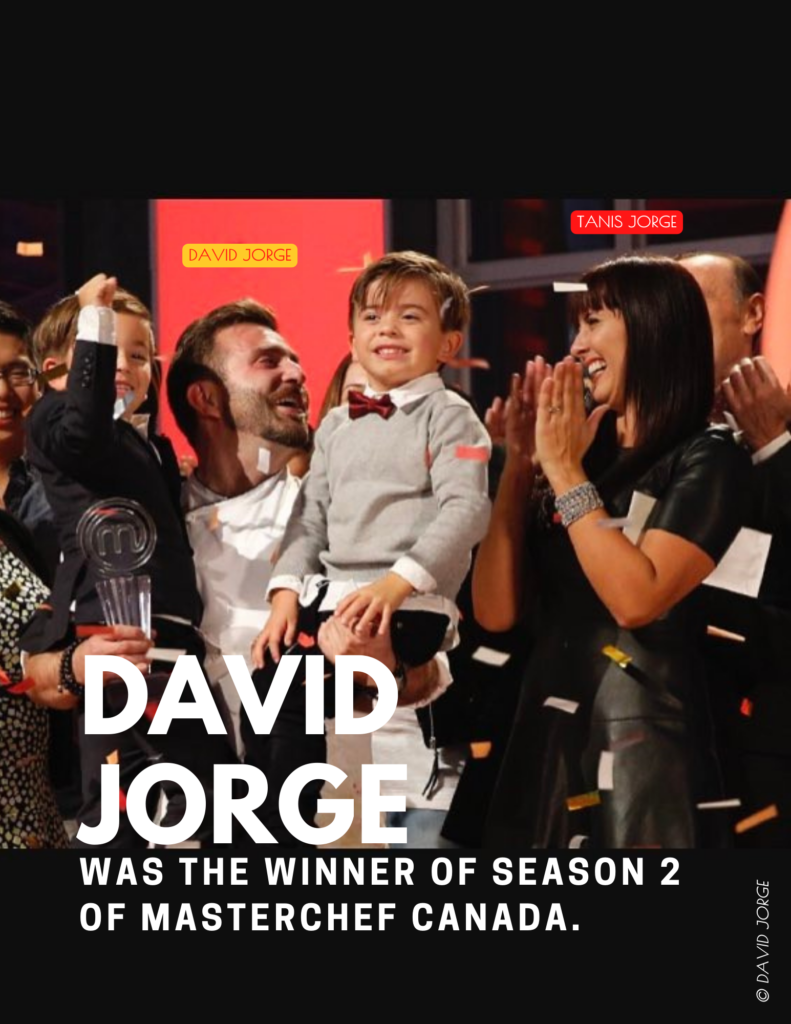
Tell us about your journey from being a brown belt kickboxer to now working towards a black belt.
I hate exercise. That said, I LOVE kickboxing. It gets me up in the morning with excitement unlike the idea of a treadmill workout. Also, kickboxing has clearly defined milestones that work with my personality. The belt colors along with the intermediary stripes are just the right carrots to keep me going. Unfortunately, I injured my knee a couple years ago and I’m still trying to get it repaired. The goal isn’t lost, it’s just a bit delayed for now.
One piece of advice that really helped you that you would like to pass on to other people.
Stephen’s dad gave the advice, “If you don’t know what to do, do nothing, until more information comes your way”. You don’t always get that luxury in business but there have definitely been times when we allowed ourselves to hold off on making a key decision until a bit more data was available. Sometimes one or two more days is all you need.
Your favorite quote.
“Enjoy the Journey”. After building three companies, I looked back and realized that we could have allowed ourselves a little more time to enjoy the process. Sometimes the concerns and stress get in the way of seeing the incredible opportunity that it is building a business. Not everyone has that luxury, so take time to appreciate what you get to do.
A classic question: How do you look at your life in terms of success?
My success is interesting because I look at it humbly and with reverence. I know what it took to achieve those accomplishments; the sacrifice, the stress, the ups, and the downs. I don’t take it for granted nor am I cocky enough to think that I’ve accomplished it on my own. I’m grateful I had the opportunity to do what I’ve done and worked with the people I have. That said, I’m excited to be doing it all over again; starting at the beginning. The Cofounder’s Hub is my way of giving back; my “success to significance” endeavour if you will. To me, seeing people find benefit and help through what I’ve been able to teach them is what really makes me feel successful.
ABOUT TANIS JORGE
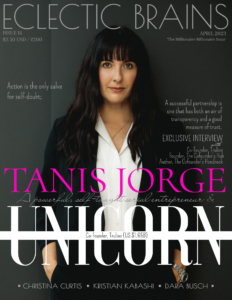
Tanis Jorge is a serial, tech entrepreneur, and a leading advisor to startup founders on entrepreneurship and building successful cofounder partnerships. Over the course of her career in startups, spanning the last 20+ years, Tanis has cofounded, scaled, and successfully exited multiple data-driven businesses.
Her successes culminated with her most recent venture, Trulioo, which she co-founded in 2011 with her long-term business partner, Stephen Ufford. Between 2011 and 2015, Tanis served as Chief Operations Officer of Trulioo, working to lay the groundwork and build the foundation for the trusted, innovative, and disruptive company it has become today. In 2021, Trulioo reached unicorn status (US $1.65B valuation) solidifying its place as the world’s leading identity verification company and Jorge’s track record for founding successful businesses. Following a record-breaking Series D, she stepped down from the Board of Trulioo to focus on her cofounder advisory work. She remains a minority shareholder of Trulioo.
Tanis cofounded her first start-up, iQuiri in 1999. The company was one of the first to make consumer credit reports available online and was acquired by Experian in 2003. In 2004, she cofounded NCB Data Services, which was again acquired by Experian in 2006. In 2005, Tanis cofounded identity management firm Pharos Global Strategies, which was again acquired four years later.
Today, Tanis is one of the go-to voices and experts on the ‘cofounder relationship’, drawing on her experience cofounding and successfully scaling four technology businesses. She is the author of The Cofounder’s Handbook and Founder of The Cofounder’s Hub, a platform for entrepreneurs looking for tools and resources to find, build, and exit a successful business partnership. Tanis also advises fast-growing start-ups and leading venture capitalists, focusing her work on how cofounders can function in an open, productive, and symbiotic way to ensure continued and long-term business success.
Tanis sits on the Board of Directors at Ally Global, a non-profit that works to prevent human trafficking and supports survivors through safe homes, education, and work opportunities. Tanis lives in Vancouver, BC with her husband and two boys. When she isn’t working she enjoys the “foodie” lifestyle with her husband David Jorge, MasterChef Canada Season 2 winner. She loves water sports and is currently working towards turning her brown belt in kickboxing into black, a lifelong item on her bucket list. Tanis also takes time to mentor students at the private school she founded, Live Learn Launch Academy, which focuses on entrepreneurship, financial literacy, and life skills.
Interviewee : Tanis Jorge, Founder at The Co-Founders Hub
Interviewer : Nidhi Mehta, Editor at ECLECTIC BRAINS
